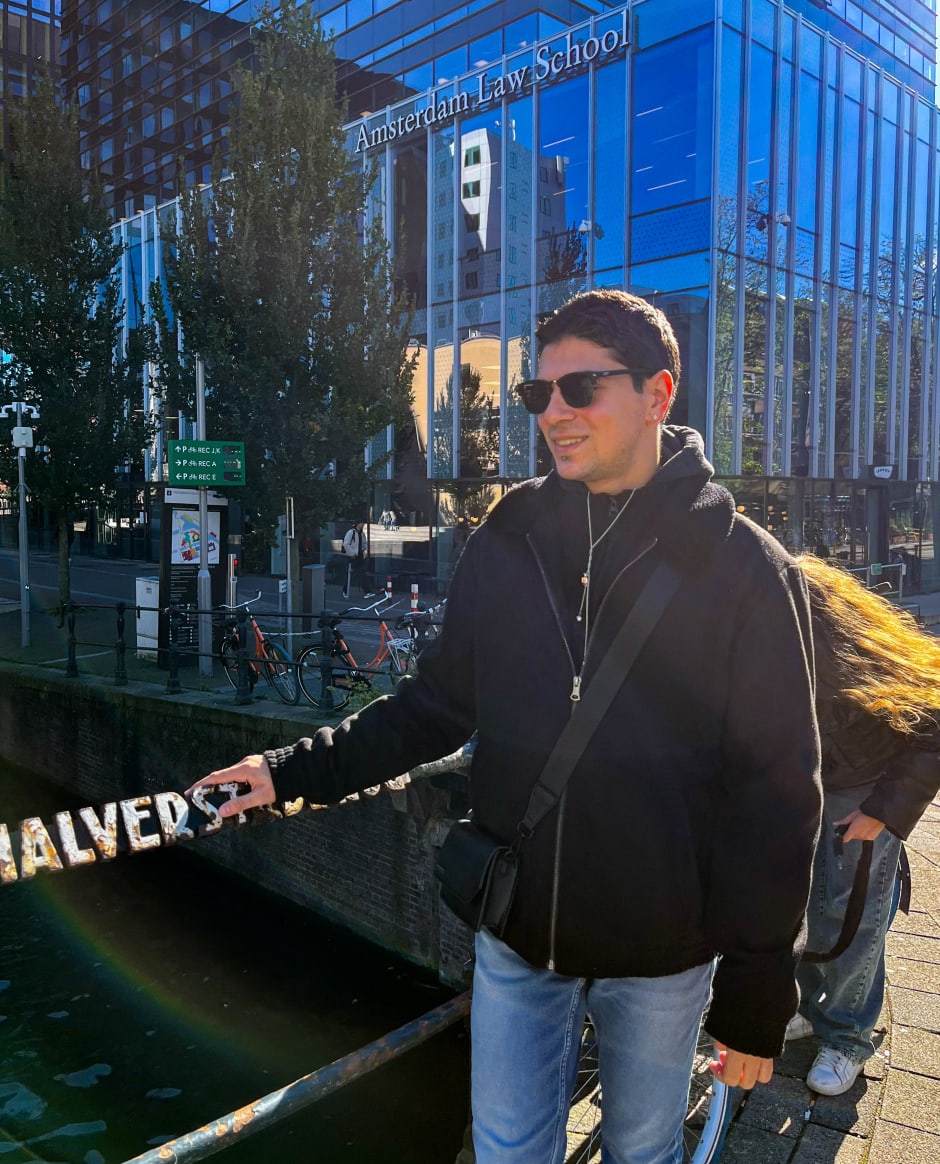
This UvA student fights for children’s rights: “Children are never top priority”
UvA-student Ozer Sahoglu (22) grew up in Cyprus, where he witnessed how children living in countries that know political turmoil become victims of their environment. He decided to dedicate himself to children’s rights worldwide. This week it is World’s Children Day, organized bij Unicef. “Profit apparently matters more than children’s rights.”
On 20 November 1989, the United Nations signed the Convention on the Rights of the Child in New York. The treaty sets out the rights that every child in the world should have. Think of basic things such as a name and a home, but also rights like freedom of expression and spare time. To commemorate these rights, Universal Children’s Day is celebrated each year on 20 November by the UN children’s organization Unicef.
And that is necessary, argues Özer Sahoglu, children’s rights activist, because according to him those rights are still far from guaranteed: “There are countless conflicts around the world in which children suffer the consequences. To raise awareness on this issue, Children’s Day carries great symbolic value, but we must not stop at that symbolic meaning. We cannot let it become a date we put on the calendar as an excuse and then simply ignore. We really need to look at what we can do for children.”

The 22-year-old Sahoglu grew up in divided Cyprus, in an environment where there was still much to be gained in terms of children’s rights, which motivated him from a young age to engage in activism. At eighteen he moved to Tilburg, where he studied law and became chair of the local UNICEF student team. When Sahoglu moved to the UvA a year ago to specialise in EU law, he became chair of the Amsterdam branch of the UNICEF student team. This spring he stepped down.
You were involved with the UNICEF student team for three years. What exactly should I picture when you say that?
“With the student teams I coordinated, we organised events each year to raise money for UNICEF. In my final year in Tilburg, for instance, we focused mainly on fundraising campaigns for children in conflict zones such as Sudan, Gaza and Ukraine. The largest event we organised there was a benefit concert featuring various dance and music performances. Ticket proceeds went to projects in those conflict areas.”
“Later, I became chair of the Amsterdam team. The biggest thing we achieved during that time was turning the Bridge on the Roeterseiland Campus blue on the evening of 20 November. UNICEF tries worldwide to illuminate symbolic buildings and monuments in blue on Children’s Day. Last year was the first time the UvA participated.”
What added value does a student team bring on top of UNICEF’s regular activities?
“As a student, you’re part of a vibrant community, and you really bring a different perspective. You’re full of ideas and you see the world differently from an adult. On top of that, you have access to all sorts of educational material, which helps in carrying out projects.”
Why did you stop?
“I wanted to create space for new faces within the organisation. Besides that, I felt it was time to focus on other projects. I’m now writing my memoirs about my youth in Cyprus. A lot has been written about the division of the country, but hardly ever by Gen Z; my own generation. I want to be the first of my generation to raise such a critical voice in Cyprus.”
“Growing up in Nicosia, Europe’s last divided capital, I saw up close how directly a child’s life is affected by circumstances. That motivated me to show others that by improving a country’s circumstances, we can truly make a big difference for the next generation. Already at the age of thirteen, I stood up for education rights in Cyprus, and I have continued to fight for a better future ever since.”
Is the child’s perspective often forgotten when we talk about conflict zones, war and violence?
“Absolutely. No matter which conflict we talk about, the political narrative rarely focuses on the interests of children. Other agendas always seem to take priority. I noticed this myself when I was invited to speak at the World Forum for Democracy. I decided to address this issue: how we almost never talk about how children are exploited and ignored by politics. How profit apparently matters more than children’s rights. But even at that event, the interruptions to my speech made it clear to me how intentionally this topic was being ignored. Children are never the top priority.”
What can the UvA do to improve children’s rights?
“I think breaking ties with universities that are actively involved in the situation in Gaza is a good first step. In addition, the UvA could focus on offering education that clarifies how political conflicts affect the lives of children.”


